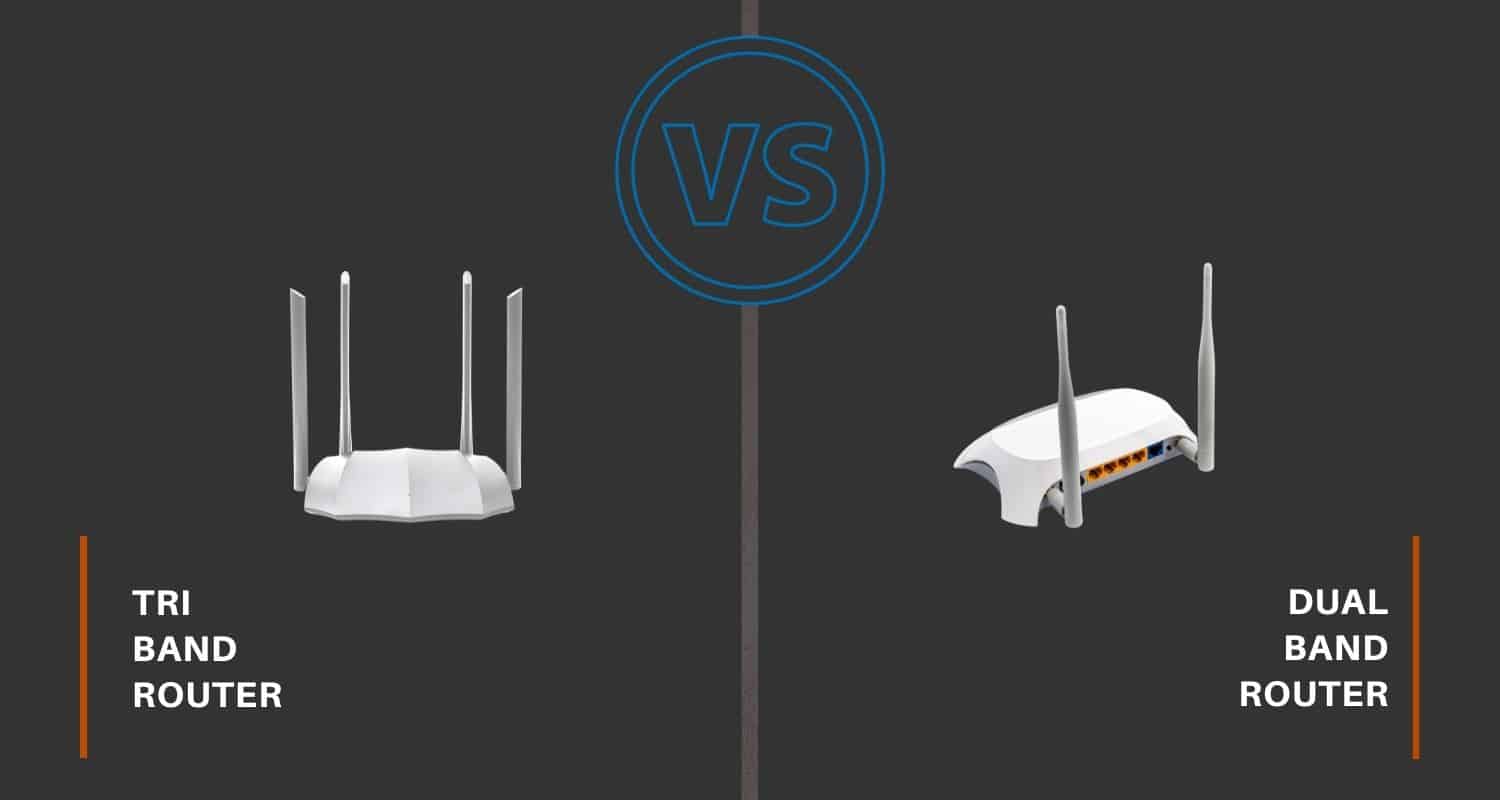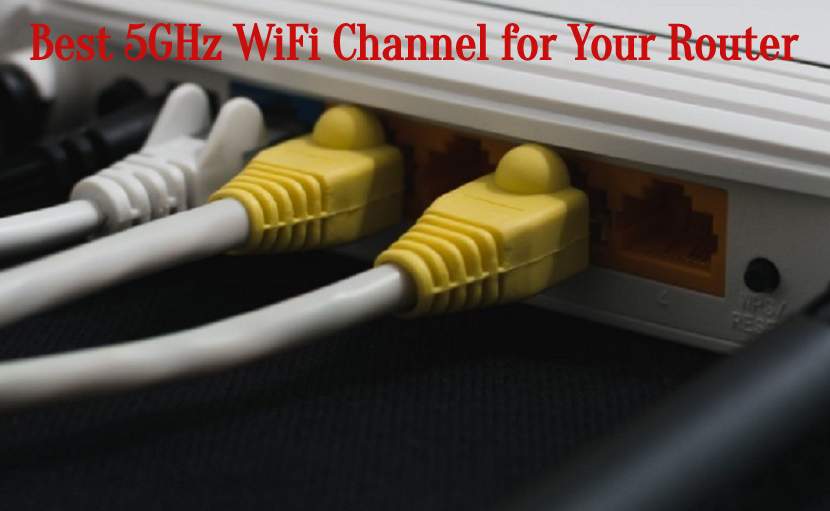Technology is getting advanced at every step. People from all over the world are seeking fast internet access that will give them complete access to work and also doing multiple activities. Even if you are watching your favorite movies or games, having high-speed internet access becomes a must.
If you do not have multiple LAN connections, configuring them with your router becomes important as well. Getting wireless internet access could be the ideal way forward. This is why choosing a wireless router is very helpful. Now the question is between choosing dual-band or tri-band Wi-Fi routers.
Here is a complete guide on dual-band vs tri-band Wi-Fi routers which will help you to understand better which one to pick.
You need to know how much time the router will last. So before you pick any router and randomly use it, you must know when you need to change the router.
Comparison and Key Differences: Dual-Band vs Tri-Band
#1. Dual-Band vs Tri-Band Wi-Fi Routers: WiFi Tiers
WiFi tiers mean clients. In most routers, you will be able to see different layers of wifi grades which also indicate both speed and grades. As a result, it always becomes important to consider this factor. It is obvious that with higher grades and standards, a router can be termed as the best in whatever it does. WiFi grades also relate to the bandwidth and the speed that you get from individual devices.
Dual-Band Routers:
Dual-band routers are a great option to choose from according to your needs. Since it comes with dual bonding channels, it features around 2 x 2 WiFi clients. Now the number of clients may vary from 4 to 5 restricting the data transmission.
Tri-Band Routers:
Tri-Band Routers are a better choice for people who are looking forward to a great result. These band routers do come along with multiple channels. As a result, you can use at least 5 or more clients with 3 x 2 bonding.
#2. Dual-Band Vs Tri-Band Wi-Fi Routers: Applications
Choosing a router on your terms means that you are about to set up a router that works well and also can be stronger. In simple terms, it is important to focus on the applications. You may either choose a router that gets connected to multiple devices or you can choose a router based on the applications you may perform with. A WiFi router with connectivity could never be the issue but it must support a total bandwidth that will allow you to get complete.
Dual-Band Routers:
Dual-band routers do come with amazing technology and features that will allow you to get a complete setup. They are more based on application purposes for your home. Even if you wish to stream a movie or go on for gaming needs, choosing this router would satisfy your ultimate goal. In a dual-band router, you may be able to stream 4K videos easily with WiFi concurrent clients. It can easily handle up to 25 clients where you can simultaneously stream 4K resolution.
Tri-Band Routers:
Tri-band routers act like a complete mesh when it comes to application. More than what you do with clients connected, tri-band routers are mainly used for establishing a connection with more number clients connected. Of Course with a tri-band router and also a modem connection, you will get to connect with more clients. With a WiFi 5 router on a triple-band channel, it becomes much easier to use this type of router. Any tri-band router can handle at least 70 clients to give a boost.
#3. Dual-Band Vs Tri-Band Wi-Fi Routers: Internet Speed
Probably the most important thing to consider before you go on to choose the exact router. End of the day, everything that should matter to you is the speed of the internet which you are using. Even if you are connected to one router or multiple ones, choosing the exact mode of internet transmission will always be important. Higher internet speed and capacity will allow you to get connected to multiple devices. As a result, you will be able to enjoy streaming games along with watching movies or 4K streaming.
Dual-Band Routers:
Dual-band routers do come up with a decent speed and internet transmission. Most of them have a maximum of 2167 Mbps which will allow you to get complete access to your work. For every regular home user, choosing a dual-band router will always be helpful.
Tri-Band Routers:
On the other hand, tri-band routers do come with amazing speed. They are designed to provide you with improved speed and performance. The maximum capacity that you can get with a tri-band router is around 3200 Mbps. If you are willing to set up a gaming hub and also connect multiple devices with lag-free gaming, using a tri-band router will be helpful.
#4. Dual-Band Vs Tri-Band Wi-Fi Routers: Broadcast signal
The procedure by which the router broadcasts the signal also indicates the capacity as well as the available connections. With more bands, it becomes easier for any router to establish a connection. With the help of more bands, you can personally allow a configuration. Because of this, you can create a guest channel and other channels for your usage. Usually, those types of bands available with your router include the 2.4 GHz channel and the 5 GHz channel. Most routers do use the 2.4GHz channel as the primary band while the 5 GHz channel is placed as the secondary band. The primary band is responsible for providing boost speed. However, the dynamic range of connections is available with a 5GHz channel. Here is a complete guide that you can follow up on to know all about the differences between 2.4 GHz and 5 GHz.
Dual-Band Routers:
By the name itself, you can understand that dual-band routers work with two different bands. They come with a 2.4GHz signal as the primary band and also a 5 GHz signal as the secondary band. With one of these bands, you can configure dedicated devices.
Tri-Band Routers:
Tri-band routers on the other hand come with a fair advantage over others. With tri-band technology, you can expect this product to deliver you with three individual bands. One of them is the primary 2.4 GHz channel while the others are 5 GHz channels.
Pros and Cons
Dual-Band Routers
Pros
- It is much more affordable compared to others.
- This product has the latest router technologies included.
- You can get decent speed and range for home use.
Cons
- The default 2.4 GHz is not the strongest in range.
Tri-Band Routers
Pros
- It offers a better range of coverage.
- Capacity and speed are much higher.
- You can customize bands for different devices.
Cons
- The costs of purchasing such products are higher.
Final Verdict on Dual-Band Vs Tri-Band Wi-Fi Routers
Choosing either dual-band routers or tri-band routers completely depends on what your requirements are and how you would like to proceed. You need to consider the complete difference between them.
A tri-band router will indeed have a better capacity and much-improved channel bonding. But ask yourself about which product you do need. You can do a simple calculation about the number of devices that need to be connected to the router.
Do let us know in the comments below about which router you will like the most and how well it is going for you.




